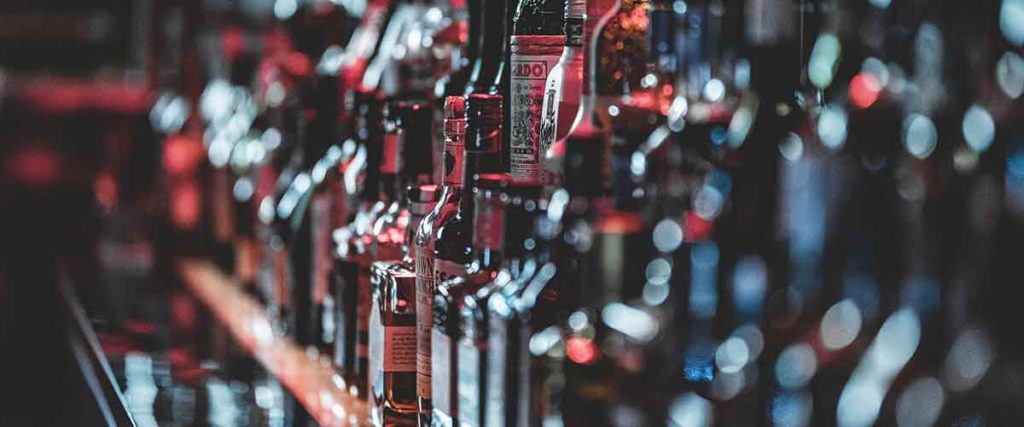When family members reach out to us, one of the most common questions we hear is “how long does it take to get addicted to alcohol?” The truth is that the answer to this question is quite complex and differs for every individual.
Factors like genetics, mental health, environment, and patterns of alcohol consumption all play significant roles in determining how quickly alcohol addiction can develop. If you’re looking for answers and more information about the timeline of alcohol use disorder, keep reading to learn from experts how quickly addiction can take hold.

Many people have stereotypes about what an “alcoholic” looks like, but the reality is that alcoholism does not discriminate based on age, gender, income, or race. Similarly, a person doesn’t need to have been drinking for decades to be classified as dependent on alcohol.
In fact, a person may be diagnosed with alcohol use disorder in as short a timeframe as a few months. When being assessed by a professional for alcohol addiction, they may ask questions such as:

Alcohol addiction can develop in as little as a few weeks or a few months. When professionals ask the above questions, they typically include “in the past 12 months,” as this is the timeframe most psychological diagnostic criteria require. However, if you’ve identified with at least 2 or 3 of the above questions, you may be at risk of developing alcohol use disorder.
It’s important not to wait to seek help if you or a family member have concerns about the risk of addiction. Early intervention is key to ensuring quick recovery and preventing severe physical and psychological consequences from long-term dependence. Many treatment programs are designed to address addiction at various stages, and the sooner treatment begins, the better the outcomes tend to be.
This brings us to one of the key aspects of addiction: alcoholism is actually composed of two dependencies—a physical addiction and a mental addiction. Others may develop one before the other, but both aspects usually need to be addressed in a comprehensive treatment for alcohol addiction.
A physical addiction to alcohol describes a state where your body has come to expect and depend on the intake of alcohol in order to function. The first sign of this is developing a tolerance, meaning you need more alcohol to get drunk than you did before. The second sign is experiencing alcohol withdrawal symptoms if you stop drinking, which are alleviated when you start to drink again.
Signs that may indicate a physical dependency is developing include:
How quickly someone can develop a physical dependence varies greatly, but it can happen in as little as a few weeks to a few months of regular heavy drinking. The primary factors are frequency and quantity of alcohol consumption. The best course of action is to consult with a medical professional who can complete an assessment if you, or someone you care about, may be developing a physical addiction.
Mental addiction to alcohol describes a psychological and emotional dependency that can develop even before physical dependence takes place. This occurs in most people who describe “needing” alcohol for one function or another, often as a way to cope with mental health challenges.
Some thoughts or statements that may indicate a level of mental dependency include:
The speed at which someone can develop a psychological addiction depends on many factors, including genetics, environment, and peer pressure. A good way to assess if you have an emotional dependence is to ask yourself, “What would happen if I couldn’t have alcohol in this situation?” If you start to worry, feel uncomfortable, or anticipate a negative experience, this may be a sign that something serious is beginning to develop.
While a physical addiction may be addressed with a medically supervised detox at a treatment center, a mental addiction is often more challenging to overcome. This is why comprehensive treatment programs for alcohol addiction address both aspects. If any of the above statements felt applicable to you, or you’ve heard them from a loved one, please consider seeking professional therapeutic support to prevent relapse and achieve lasting recovery.
Several factors can influence how quickly someone becomes dependent on alcohol:
Research shows that genetics account for about 50% of the risk for alcohol use disorder. If you have a family history of alcoholism, you may be more susceptible to developing an addiction more quickly than others.
People with underlying mental health issues such as depression, anxiety, or trauma may be more likely to use alcohol as self-medication, potentially accelerating the development of dependence.
Those who begin drinking at an earlier age are at higher risk for developing alcohol addiction later in life. The developing brain is more vulnerable to the effects of substances.
Being in environments where heavy drinking is normalized or experiencing peer pressure to drink can contribute to faster development of problematic drinking patterns.
Understanding the progression from occasional drinking to addiction reveals a surprisingly swift timeline, often within a few months. While exactly how quickly alcohol addiction can develop varies greatly between individuals, we can see how seemingly innocent thoughts and behaviors can transform into a serious disorder relatively quickly.
Early intervention for addiction or potential addiction is vital; however, it is never too late to seek professional help. The question shouldn’t necessarily be “how long does it take to get addicted to alcohol” but rather, “how quickly can I get help?”
At Clinic Les Alpes, we offer personalized treatment programs for those struggling with alcohol addiction at any stage. Our comprehensive approach addresses both the physical and psychological aspects of dependence, providing the support needed for lasting recovery. Discover our alcohol addiction treatment.
If you recognize any of the warning signs mentioned in yourself or a loved one, we encourage you to reach out. Taking that first step toward recovery is the most important one, and we’re here to guide you through the journey.